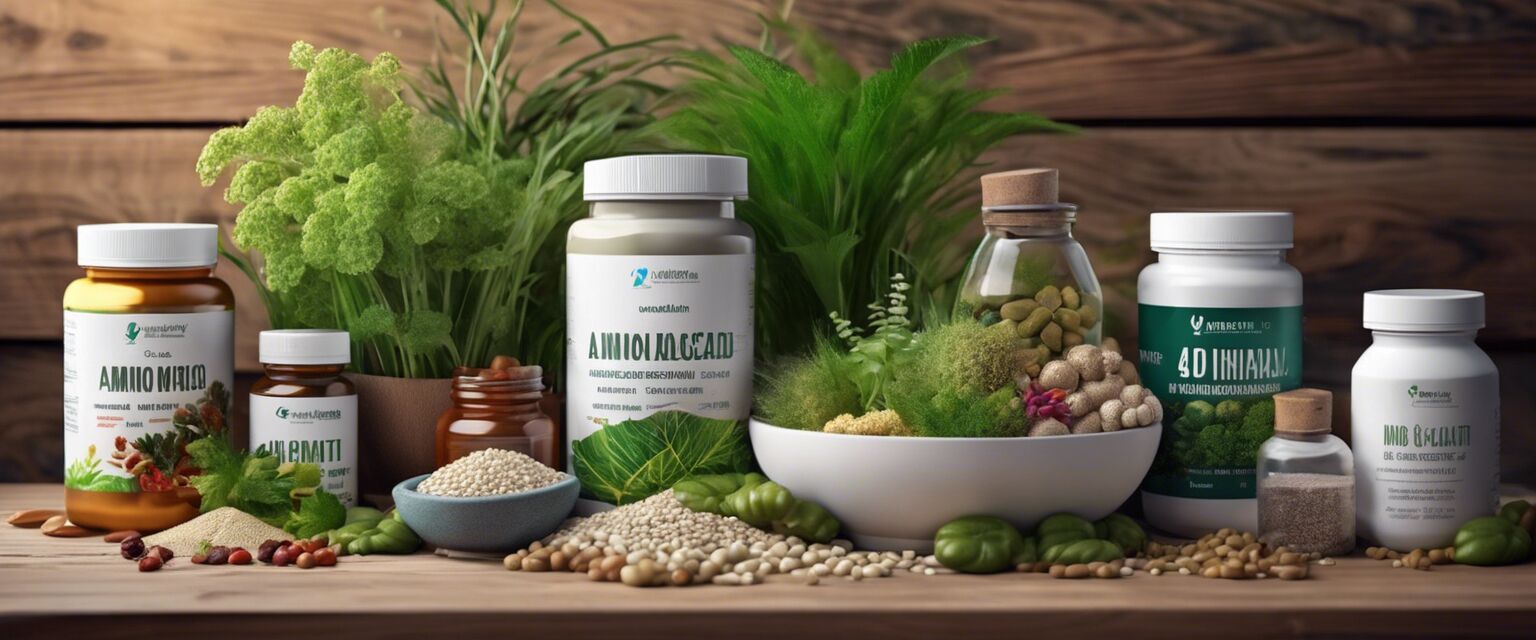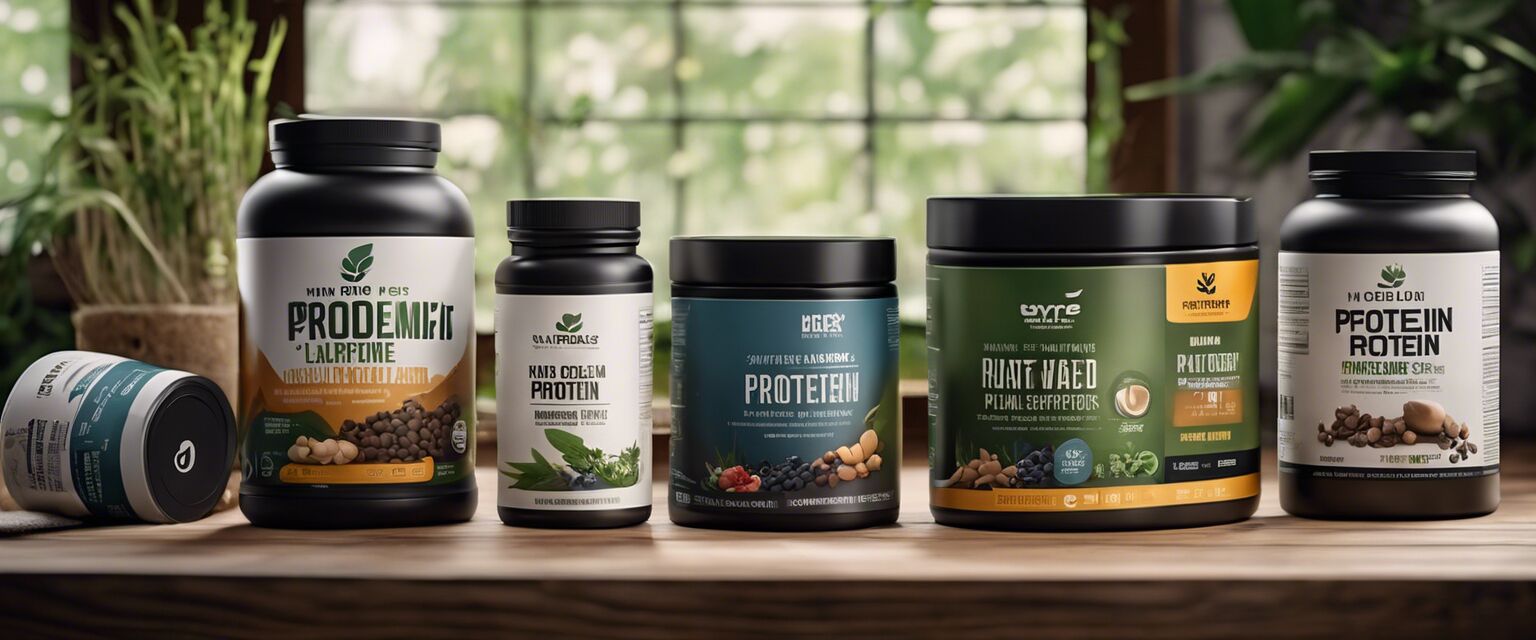
Plant-Based Amino Acids
Key Takeaways
- Plant-based amino acids are essential for muscle building and recovery.
- They are derived from various plant sources, making them suitable for vegans and vegetarians.
- Understanding different types of amino acids can help in selecting the right supplements.
- These supplements can complement your diet and workout routine effectively.
Amino acids are the building blocks of proteins and play a crucial role in muscle growth, repair, and overall health. For those following a plant-based lifestyle, finding the right amino acid supplements can be challenging. This article provides a detailed analysis of plant-based amino acid supplements, focusing on their benefits, types, and how they can aid muscle building and recovery.
What are plant-based amino acids?
Plant-based amino acids are amino acids sourced from plants, making them an excellent option for individuals looking to enhance their performance without consuming animal products. These supplements can provide the essential amino acids that the body cannot produce on its own.

Types of amino acids
Amino acids are classified into two main categories: essential and non-essential amino acids.
| Amino Acid Type | Description | Examples |
|---|---|---|
| Essential Amino Acids | Amino acids that cannot be synthesized by the body and must be obtained through diet. | Histidine, Isoleucine, Leucine, Lysine, Methionine, Phenylalanine, Threonine, Tryptophan, Valine |
| Non-Essential Amino Acids | Amino acids that the body can produce on its own. | Alanine, Asparagine, Aspartic Acid, Glutamic Acid, Serine |
Benefits of plant-based amino acid supplements
Plant-based amino acid supplements can offer several advantages for those looking to build muscle and recover effectively:
- Support muscle growth and maintenance.
- Enhance recovery after workouts.
- Help reduce muscle soreness.
- Boost overall athletic performance.
How to choose the right plant-based amino acid supplement
When selecting a plant-based amino acid supplement, consider the following factors:
Tips for Beginners
- Look for products that contain a complete profile of essential amino acids.
- Check for third-party testing to ensure quality and purity.
- Consider the source of the amino acids (e.g., pea protein, hemp protein).
- Read customer reviews for insights on effectiveness and taste.
- Consult with a nutritionist or dietitian for personalized recommendations.

Popular sources of plant-based amino acids
Here are some common plant sources rich in amino acids:
| Plant Source | Amino Acid Profile |
|---|---|
| Quinoa | Complete protein with all nine essential amino acids. |
| Chia Seeds | Rich in omega-3 fatty acids and several amino acids. |
| Hemp Seeds | Contains all essential amino acids and is high in protein. |
| Pea Protein | Good source of branched-chain amino acids (BCAAs). |
| Brown Rice | Contains a good amount of essential amino acids, especially when combined with other proteins. |
Incorporating plant-based amino acids into your diet
There are various ways to incorporate plant-based amino acids into your daily routine:
- Add protein powder to smoothies or shakes.
- Include legumes such as lentils and beans in meals.
- Snack on nuts and seeds for a boost of protein.
- Experiment with quinoa or other whole grains as a base for meals.
Conclusion
Plant-based amino acids are a powerful addition to any fitness regimen, especially for those committed to a vegan or vegetarian lifestyle. By understanding their benefits, types, and sources, you can effectively enhance your muscle building and recovery journey.
Pros
- Suitable for vegans and vegetarians.
- Provides essential nutrients for muscle growth.
- Variety of sources available.
- Helps support recovery after intense workouts.
Cons
- May not provide as high a protein content as animal sources.
- Some products may contain allergens.
- Taste and texture may not appeal to everyone.
For more information on related topics, check out our articles on Protein Powders, Recovery Supplements, Endurance Enhancers, Fat Burners, and Pre-Workout Boosters.







